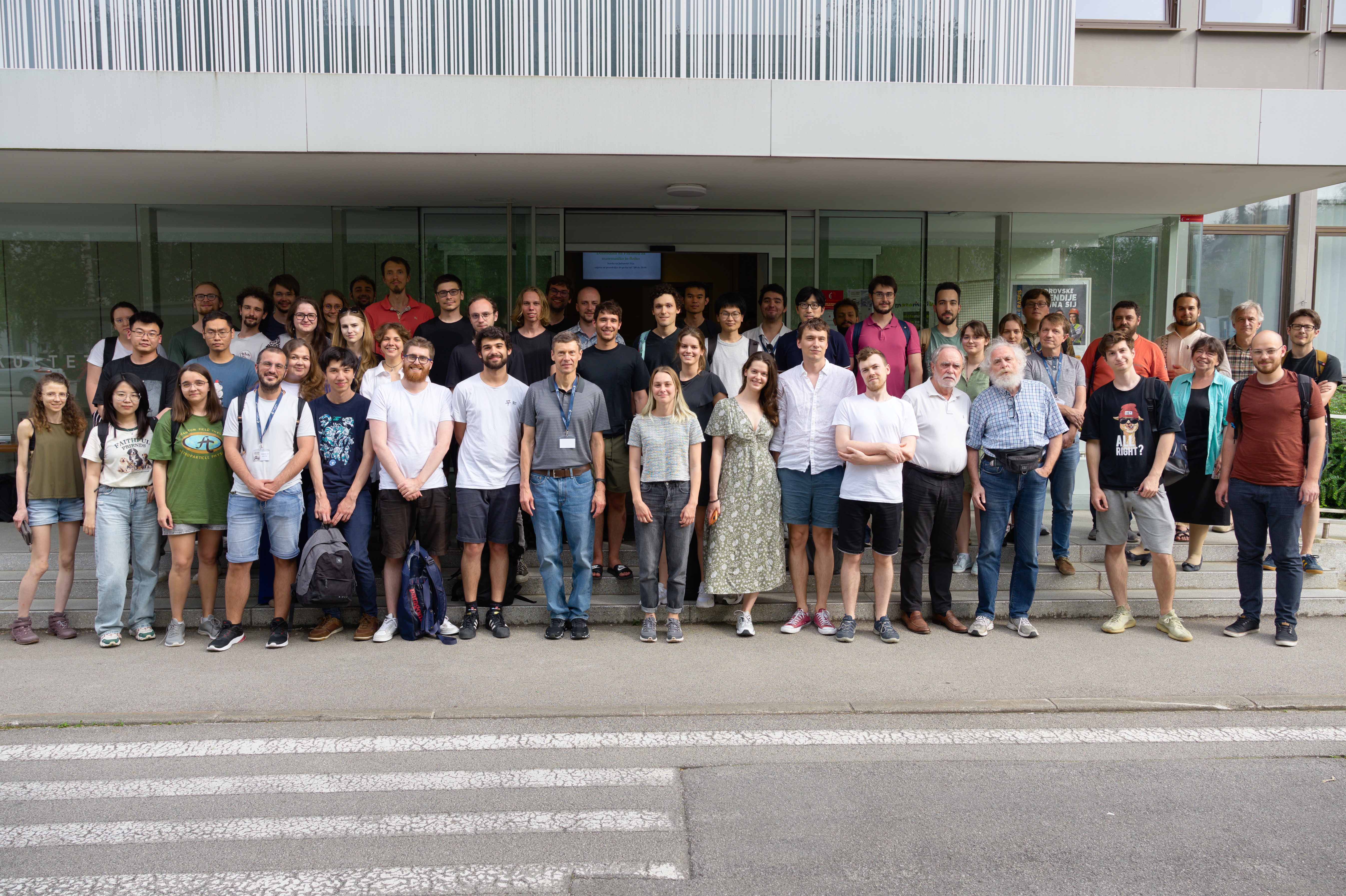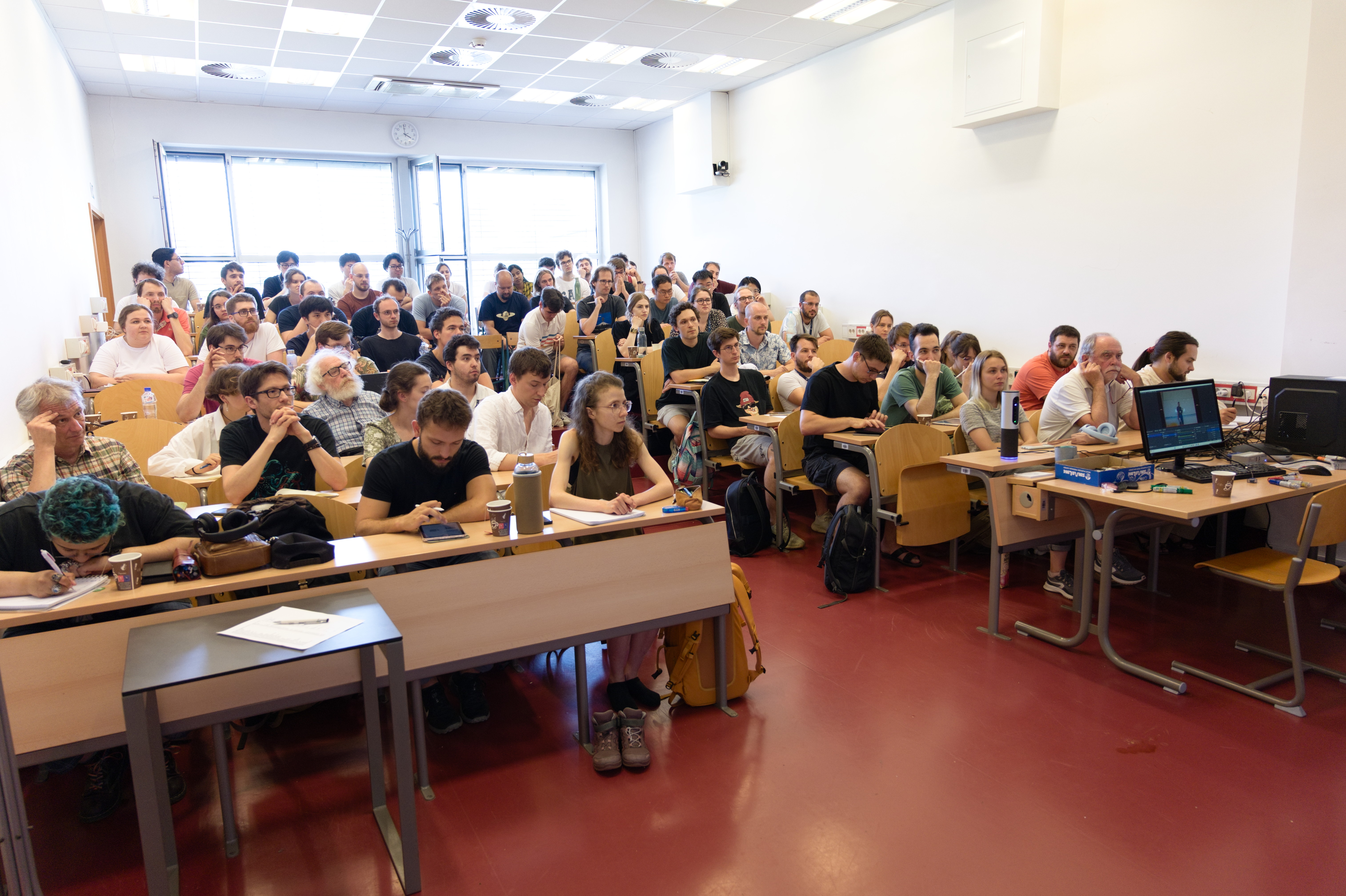You are here :
- EUTOPIA website
- Home
- STUDENTS
- Connected Communities
- ICC
Quantum Technologies Initiative
The central task of this community is to establish the "EUTOPIA Quantum Technologies Initiative", by capitalising on the existing scientific and teaching cooperation between a number of EUTOPIA partners and to bring this cooperation to a new level by creating the core of the Quantum Technologies programme. This Centre of Excellence will be used to establish new cooperation with other partners within EUTOPIA, and other Universities/industry.
Connected Community Activities
- Upcoming Activities
-
coming soon - Past Activities
-
Joint course : Machine (Deep) Learning for physicists 2024-25This is the 5th year that the course has been delivered at EUTOPIA nodes CYU Cergy Paris and Warwick (12 lectures during 6 weeks, from January to February). The course is intended to give a hands-on, first introduction to the topic, following up theoretical understanding with examples using state-of-the-art deep learning packages such as Keras, FastAI, TensorFlow and PyTorch. In doing so, students will use Jupyter Notebooks as a frontend to Python. Participants are assumed to have their own deep learning platform at hand, although most modern laptop resources should be sufficient.
The course leaders are Prof Rudolf A. Roemer from Warwick and Dr Mats Granath from Göteborg. More information about the course, including its content, can be found at: https://warwick.ac.uk/fac/sci/physics/mpags/modules/comp/machinelearning/24-25
At CYU Cergy Paris, the course is part of the M2-level course while at Warwick it is being taught as part of post-graduate training for the Midlands Physics Alliance Graduate School (with PhD students from Birmingham, Bristol, Nottingham, etc, attending online). This year, we want to make the course available to other EUTOPIA partner universities. We expect the course to be useful for post-graduate physics and science students with no previous formal training in deep-learning methods.
Workshop QUANTopia 2025
Thursday, May 15th 2025 to Saturday, May 17th, 2025 - University of Warwick (Coventry, UK)
This workshop aims to develop a proposal for a Marie Skłodowska-Curie Actions (MSCA) Doctoral Networks – Joint Doctorates (DN-JD) scheme. Building on the established EUTOPIA connections and the “connected community in quantum technologies” (CCQT), the initiative will develop a robust network of partner institutions, including CYU Cergy Paris, Dresden, Gothenburg, Ljubljana, and Warwick, to establish a joint doctoral program in quantum technologies and machine learning.
-> Find all information and registration here: https://warwick.ac.uk/fac/sci/physics/news/physicsdays/events/quantopia2025
Ljubljana PhD School on Quantum Physics
June 10 – July 3, 2024 - Ljubljana (Slovenia)
Ljubljana PhD School on Quantum Physics was organized with the idea to provide a broad range of lectures in the field of modern Quantum Physics given by active professionals in the field. Both theoretical and experimental courses were included.Three types of lecture courses were arranged: 1) long educational courses (8 and 10 lectures, each for 90 minutes) with systematic description of modern theoretical methods, 2) intermediate-scale lecture courses (4 lectures), and 3) brief courses with review-like accounts of modern directions in the field. Nearly all lecture courses are recorded and available at the School web-site https://www.qtfuture.si/summer-school-2024
Theoretical and Experimental Magnetism Meeting (TEMM) 2024
10th and 11th June 2024 - Abingdon, Oxfordshire, UK
Prof. Dmitry Kovrizhin and Roderich Moessner will give a talk as invited speakers.
Talks will cover current research in both theoretical and experimental magnetism, and is intended for anybody who wishes to become familiar with current research in this area, with the special emphasis to bring scientists from UK and abroad together to foster long-term collaborations.
Conference " Quantum information: Theory and Applications "
The EUTOPIA Connected Community "Quantum Technologies Initiatives" is organising a 2-days conference/workshop on November 2-3 2023 at Cergy (France). The purpose of the workshop is to bring together actors from informatics as well as theoretical and experimental physics in order to assess the present state of the field.
Find more information and register here
How to get involved?
(Students and educators)
Please contact Dmitry Kovrizhin, Connected Community lead (dmitry.kovrizhin@cyu.fr) and Tomy Quenet, Local facilitator (tomy.quenet@cyu.fr)
Connected Community Members
- Lead: Dmitry Kovrizhin (CY). Email: dmitry.kovrizhin@cyu.fr
-
Coming soon
- Partner: Roderich Moessner (TUD). Email: moessner@pks.mpg.de
-
Coming soon
- Partner: Tomaž Prosen (UL). Email: tomaz.prosen@fmf.uni-lj.si
-
Coming soon
- Partner: Rok Žitko (UL). Email: rok.zitko@ijs.si
-
Coming soon
- Partner: Rudolf A. Roemer (UW). Email: R.Roemer@warwick.ac.uk
-
Coming soon
- Partner: Gavin Morley (UW). Email: Gavin.Morley@warwick.ac.uk
-
Coming soon
- Partner: Mats Granath (GU). Email: Mats.Granath@physics.gu.se
-
Coming soon
- Partner: Ben Craps (VUB). Email: Ben.Craps@vub.be
-
Coming soon




